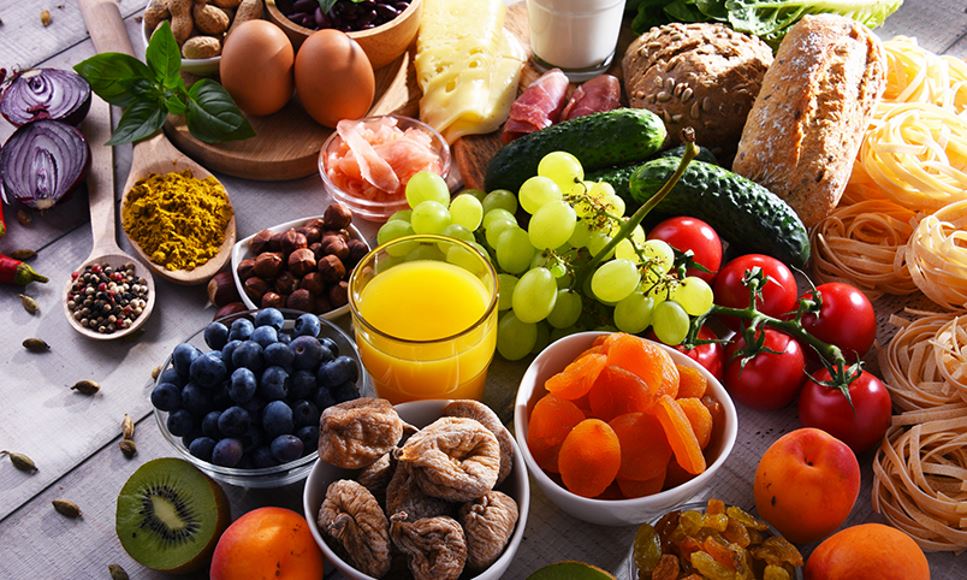The bulk of the components found in food are referred to as nutrients. The process of breaking down nutrients will provide a plethora of subtle nuances that go beyond the measurement of calories. A healthy and balanced diet is an excellent approach to improve the food web. However, many people have incorrect views about this nutritional area. Nonetheless, it is critical to first identify which of the following assertions really reflects a nutritionally balanced diet. A well-balanced diet is one of the most effective ways to maintain excellent health. On the other side, you should understand what a balanced diet is and how to accomplish it. The objective of this article is to explain what a nutritionally balanced diet is, why it is vital, and how to maintain it. We'll learn a lot about this issue by reading this article. Please remain tuned and make an attempt to grasp what a nutritionally balanced diet is and what it entails.
What Determines a Nutritionally Balanced Diet

The notion of a diet that is nutritionally balanced is not a trivial one. It's possible that various persons have varied specifications for their diet. Their age, gender, degree of exercise, current health state, and personal preferences are all factors that fully determine the outcome. Nevertheless, there are a few broad concepts that are applicable to the majority of individuals who are healthy. According to the Dietary Guidelines for Americans, a diet that is appropriately balanced in terms of nutrients should look like the following chart:
- There should be a variety of meals that come from each of the dietary categories. Similar to foods such as fruits, vegetables, cereals, foods high in protein, and foods that include dairy or milk.
- Reduce your consumption of added sweets, saturated fats, trans fats, salt, and alcohol throughout the day.
- Your calorie requirements will be met, and you will be able to reach or maintain a healthy weight.
- Take into account both your individual and cultural tastes.
A nutritionally balanced diet food is described by which statement?
Nutrition is the study of how diet and nutrients effect health. The study of nutrition includes:
- The digestive process breaks down food. Body can absorb and utilize it.
- Metabolism converts food and nutrients into energy and other molecules.
- Food contains nutrients, which provide the body energy, structure, and function. There are six main nutrient
1. carbohydrates,
2. proteins,
3. fats,
4. vitamins,
5. minerals,
6. and water.
- Diet: this is the pattern of food and drink consumption over time. A diet can influence the health and risk of diseases of an individual or a population.
- Dietary Reference Intakes (DRIs): This is the recommended amounts of nutrients and energy. People should consume to meet their nutritional needs and prevent deficiencies or excesses.
- Nutritional Status: This is the condition of the body in relation to the intake and utilization of nutrients. Nutritional status can be assessed by measuring dietary intake, biochemical indicators, anthropometric measurements, and clinical signs and symptoms.
What are the 5 Characteristics of a Nutritious Diet?
There are 5 Characteristics of a Nutritious Diet. They are:
- Adequacy: The diet has adequate necessary nutrients, fiber, and energy. It is necessary for a healthy individual.
- Balance: The diet does not offer insufficient or excessive amounts of any food category in comparison to others.
- Calorie Control: The diet delivers an optimum number of calories. It may help you maintain a healthy weight and avoid over or undereating.
- Moderation: The diet does not include excessive quantities of undesired substances. Examples include added sugars, saturated fats, trans fats, and salt.
- Variety: The diet comprises a diverse selection of foods from various dietary categories and origins. It improves the nutritional value and pleasure of the diet.
What are the Main Components of a Balanced Diet?
A balanced diet consists of a variety of foods from all the food group. Each food group provides different types and amounts of nutrients that the body needs. The MyPlate model, developed by the U.S. Department of Agriculture (USDA), is a simple and visual guide to help you plan a balanced diet. According to MyPlate, a balanced diet should include:
- Fruits provide carbs, fiber, vitamin C, potassium, and phytochemicals. For a diet of 2,000 or more calories, around 2 cups per day is recommended. Choose entire fruits over fruit juices, and go for fresh.
- Vegetables provide carbs, fiber, vitamins A and C, folate, potassium, and phytochemicals. A 2,000-calorie diet requires around 2.5 cups per day. Choose veggies in a variety of colors and varieties, including dark green, red, orange, starchy, and other options.
- Grains provide carbs, fiber, B vitamins, iron, magnesium, and selenium. For a 2,000+ calorie diet, around 6 ounces per day are recommended.
- Protein meals include protein, iron, zinc, vitamin B12, and other minerals. A 2,000-calorie diet requires around 5.5 ounces per day. Choose a range of protein sources, including lean meats, poultry, fish, eggs, nuts, seeds, soy products, and beans.
- Dairy and enriched soy substitutes include protein, calcium, vitamin D, and other minerals. For a diet with more over 2,000 calories, around 3 cups per day is recommended. Choose low-fat or fat-free dairy products like milk, yogurt, cheese, or cottage cheese, as well as fortified soy substitutes like soy milk, soy yogurt, and soy cheese.